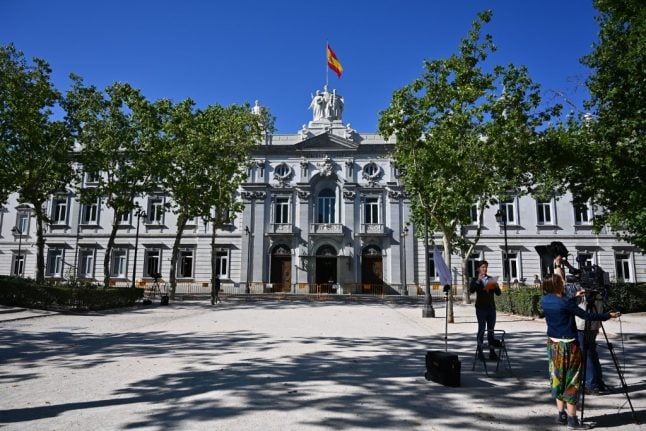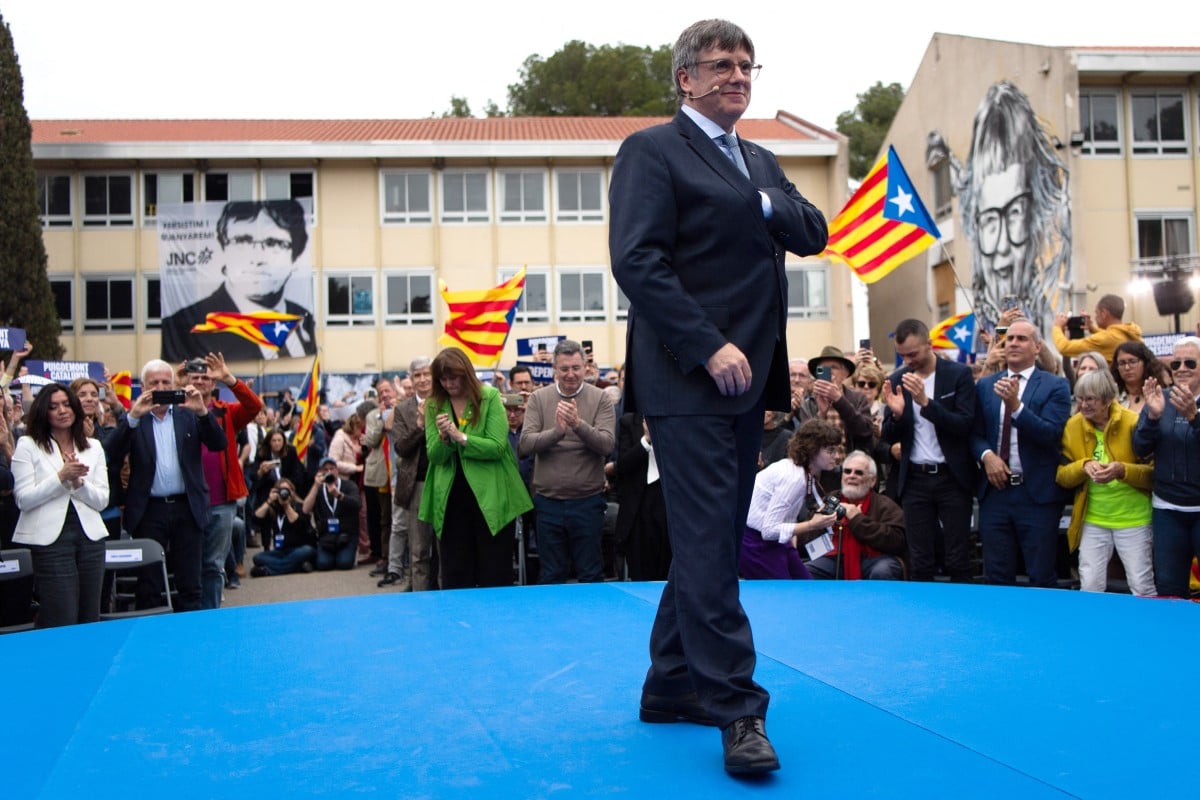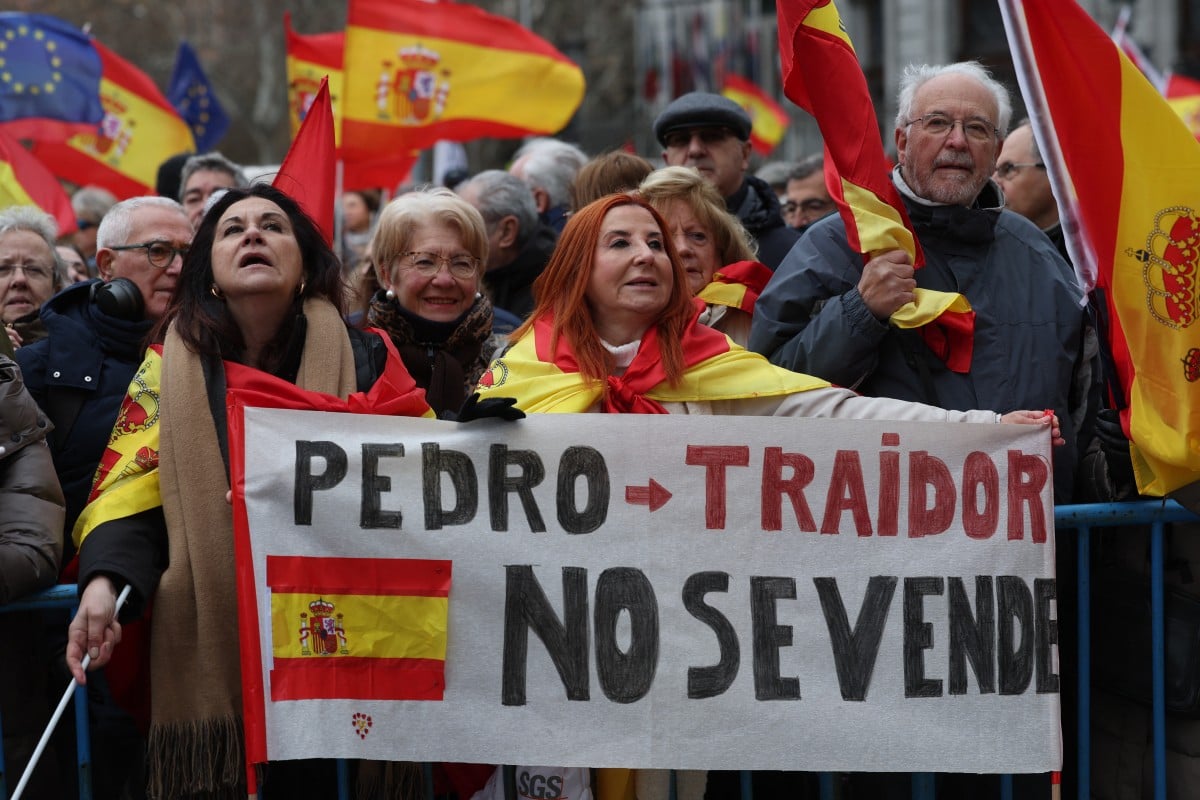The reform would have changed the way appointments are made to the General Council of the Judiciary (CGPJ) which is responsible for naming judges and ensuring the independence of both courts and judges.
“We are going to stop the clock on the reform of the CGPJ in order to reach an agreement with you,” Spanish Prime Minister Pedro Sanchez said in parliament, addressing the right-wing opposition Popular Party (PP).
He did not specify how long that freeze would last.
Known as Spain's legal watchdog, the CGPJ has 20 members — 12 judges or magistrates and eight lawyers or other jurists — elected by both chambers of the Cortes (parliament).
The reform would have affected the appointment of the 12 judges.
The council's mandate expired in December 2018 but Sanchez has been unable to push through the appointments for lack of parliamentary support, notably from the PP.
Since then, it has been operating on an interim basis, prompting criticism from the European Union.
'Strong institutions' needed
Under the current legislation, the judges have been appointed by a three-fifths majority vote — which requires backing from the PP — but the judicial reform would have changed that to an absolute majority.
It was proposed by Sanchez's leftwing coalition as a way of circumventing the need for the PP's support.
Having the appointments approved by an absolute majority could allow the coalition to bypass the PP and chose judges of a certain ideological persuasion, whereas under the current system, all parties are compelled to compromise.
Alarm bells began ringing at the end of September when the European Commission singled out Spain in its report on the rule of law for not renewing CGPJ membership as it should have done two years ago.
And it stressed the importance of ensuring that the council “is not perceived as being vulnerable to politicisation”, in a clear nod to the necessary separation of executive and judicial powers.
Speaking to parliament on Thursday, Sanchez said his government would once again seek a compromise with the PP.
“First and foremost, we need strong, legitimate institutions, so I am appealing to the entire House and particularly the party which has been blocking the renewal of these constitutional institutions,” he said in remarks directed at PP leader Pablo Casado.
The current impasse is just one aspect of a bitter standoff between the Socialists and their hard-left coalition ally Podemos, and the PP, which started with the government's handling of the coronavirus pandemic.
The proposed reform had also sparked concern in part of the judiciary.
Brussels watching carefully
European Commission spokesman Christian Wigand told AFP Brussels was following the developments in Spain “closely”.
“Member states must follow EU standards to ensure that judicial independence is not compromised,” he said.
The European Association of Judges (EAJ) had also expressed “great concern” Spain was taking a step backwards with respect to the basic requirements for ensuring judicial independence.
Pushing through with the reform, it warned, would “increase the risk of undue political influence in the appointment of the members of the Judicial Council, damaging the perception of the society of an effective judicial
independence”.
For Sanchez's government, the worry was that Spain could find itself compared to Hungary and Poland, which have been criticised by Brussels for trying to exert control over the judiciary.
But experts said Madrid should not be put in the same category as Warsaw or Budapest.
“Spain isn't Poland or Hungary,” said Pablo Castillo, an expert in law and political science at Sheffield University in northern England.
Sanchez's proposal “is not going to lead to a collapse of the rule of law in Spain, although it's hardly supporting the independence of the judiciary,” he told AFP, while admitting the proposal “does echo things that have happened in these two countries”.
“The question of judicial independence is not black or white, it's a question of nuance.”
By AFP's Marie Giffard
ANALYSIS: How Spain's judicial reform plan is raising a red flag in Brussels





 Please whitelist us to continue reading.
Please whitelist us to continue reading.
Member comments